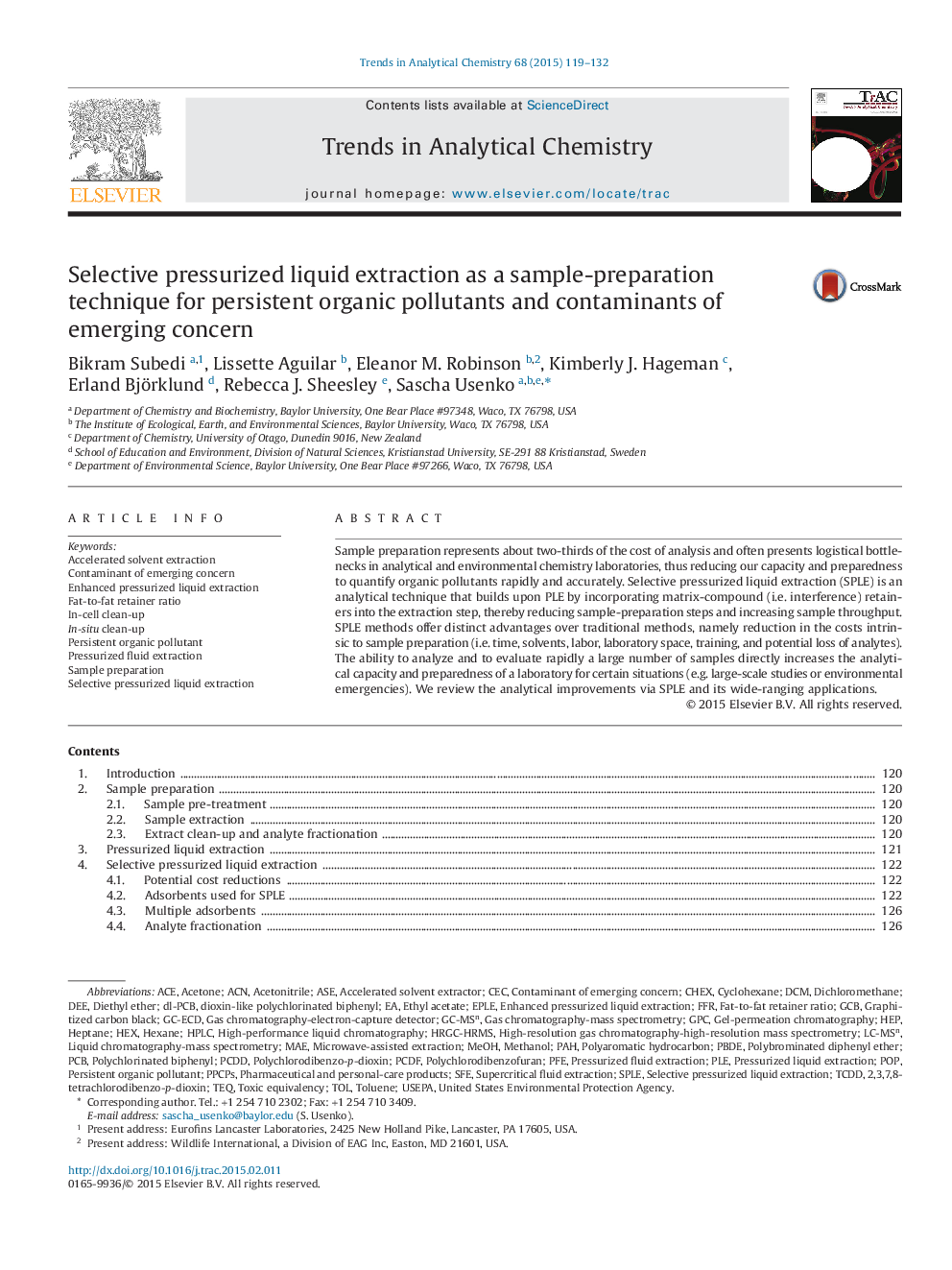| Article ID | Journal | Published Year | Pages | File Type |
|---|---|---|---|---|
| 7689508 | TrAC Trends in Analytical Chemistry | 2015 | 14 Pages |
Abstract
Sample preparation represents about two-thirds of the cost of analysis and often presents logistical bottlenecks in analytical and environmental chemistry laboratories, thus reducing our capacity and preparedness to quantify organic pollutants rapidly and accurately. Selective pressurized liquid extraction (SPLE) is an analytical technique that builds upon PLE by incorporating matrix-compound (i.e. interference) retainers into the extraction step, thereby reducing sample-preparation steps and increasing sample throughput. SPLE methods offer distinct advantages over traditional methods, namely reduction in the costs intrinsic to sample preparation (i.e. time, solvents, labor, laboratory space, training, and potential loss of analytes). The ability to analyze and to evaluate rapidly a large number of samples directly increases the analytical capacity and preparedness of a laboratory for certain situations (e.g. large-scale studies or environmental emergencies). We review the analytical improvements via SPLE and its wide-ranging applications.
Keywords
DEEASEGCBPBDEACNACESPLECECdioxin-like polychlorinated biphenylDL-PCBGPCPAHGC-ECDLC-MSnTCDDPCDDPCDFFFRHEPTEQTOLDCMPolychlorodibenzofuranPPCPsCyclohexanePLEHRGC-HRMSPFEPCBSFE2,3,7,8-Tetrachlorodibenzo-p-dioxinPersistent organic pollutantSample preparationUnited States Environmental Protection AgencyEthyl acetateSupercritical fluid extractionSelective pressurized liquid extractionPressurized Liquid ExtractionPressurized fluid extractionmicrowave-assisted extractionAcetoneAcetonitrileMAEPolychlorinated biphenylTolueneDiethyl etherPolybrominated diphenyl etherDichloromethaneaccelerated solvent extractoraccelerated solvent extractionLiquid chromatography-mass spectrometryMethanoltoxic equivalencyMeOHHeptaneHexhexanePolyaromatic hydrocarbonpopIn-cell clean-uphigh-performance liquid chromatographyHPLCgel-permeation chromatographyGas Chromatography-Mass SpectrometryUSEPAgraphitized carbon black
Related Topics
Physical Sciences and Engineering
Chemistry
Analytical Chemistry
Authors
Bikram Subedi, Lissette Aguilar, Eleanor M. Robinson, Kimberly J. Hageman, Erland Björklund, Rebecca J. Sheesley, Sascha Usenko,
